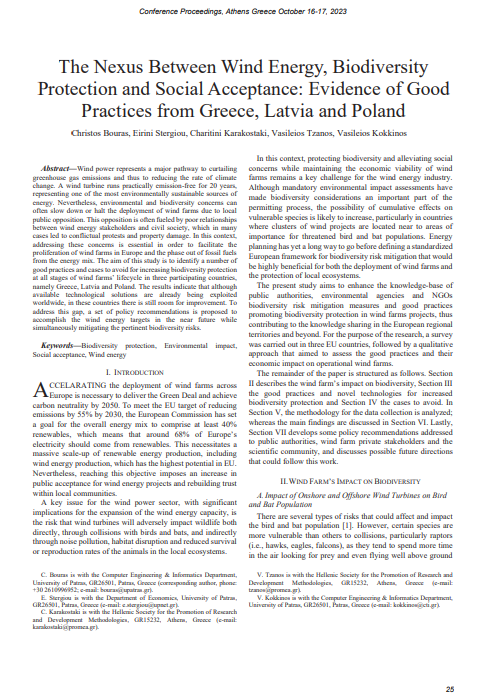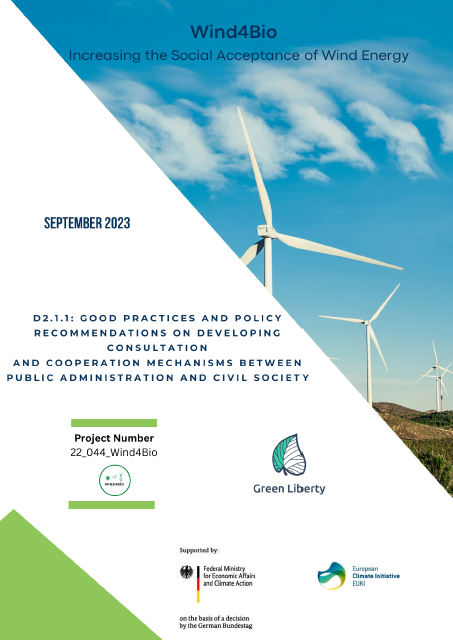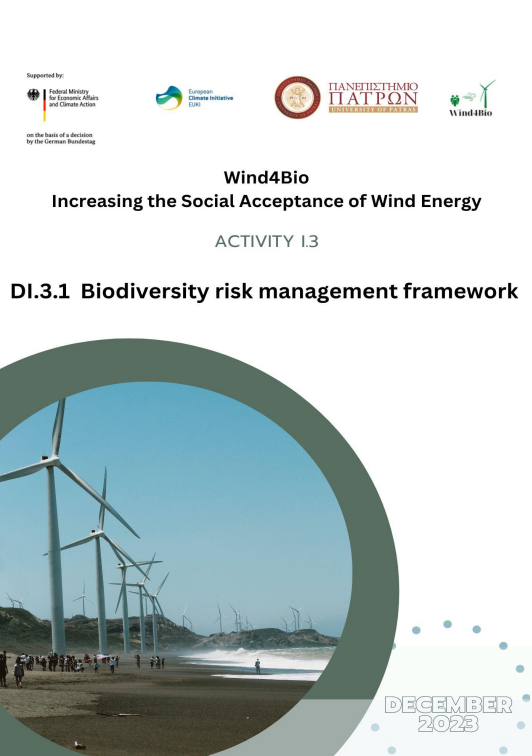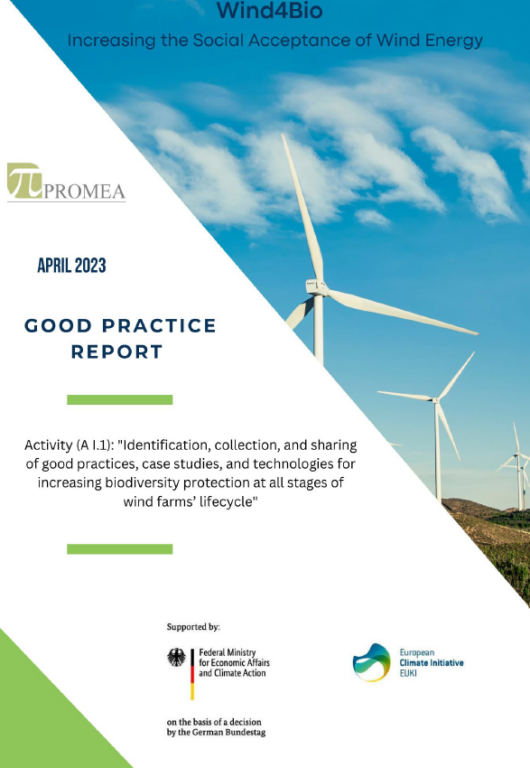Wind4Bio – Increasing the Social Acceptance of Wind Energy
Promoting the convergence of wind energy and biodiversity policies by involving civil society to find a consented transition to renewable energy sources.
Energy Transition and Climate-Neutral Buildings Renewable Energy
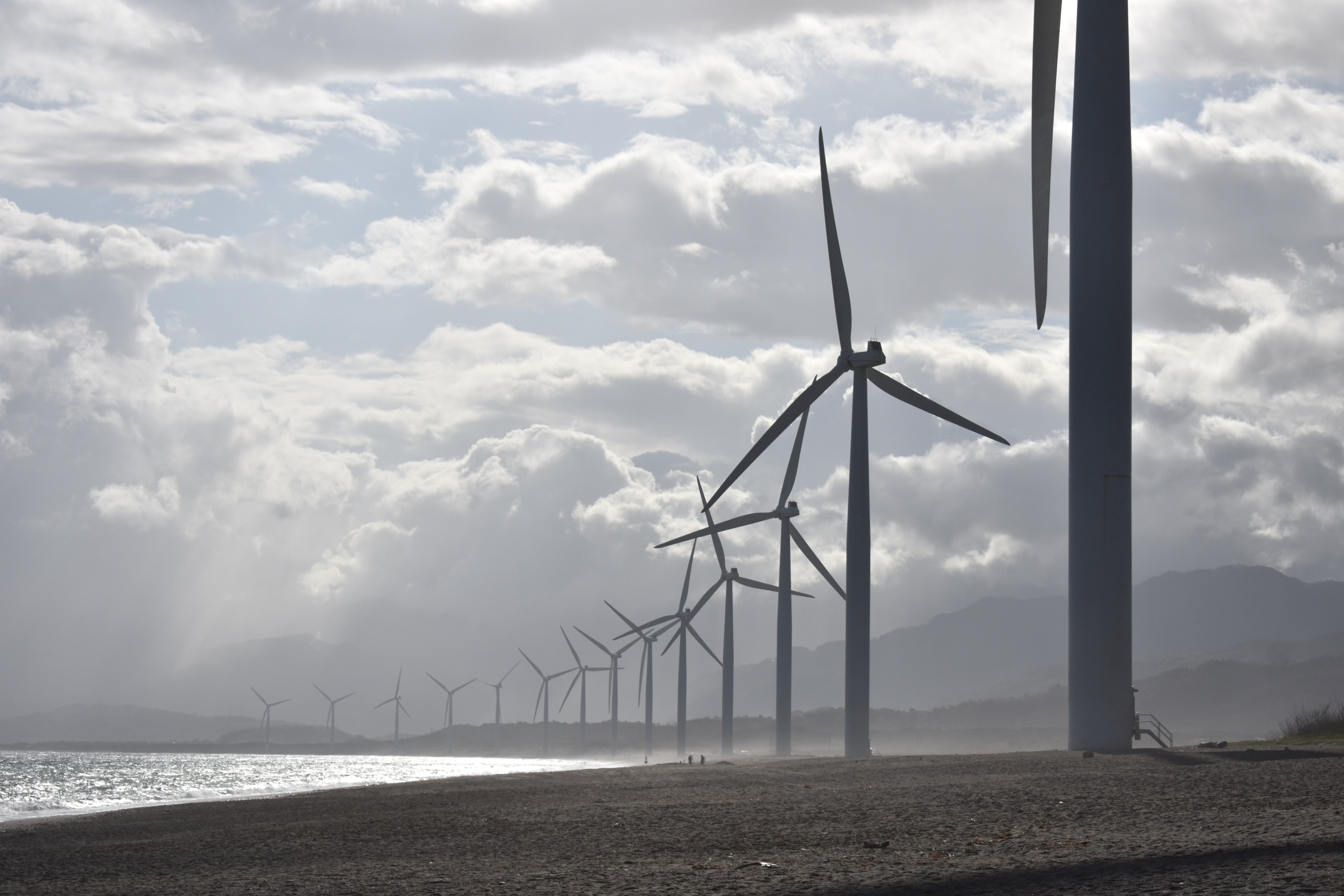
Project info
Greece, Latvia, Poland
12/22 - 03/25
Non-governmental organisations, Civil society, Local governments, Public sector, National governments, Regional governments
347,929.28 €
Contact info
Christos Bouras
- Green Liberty
- HELLENIC SOCIETY FOR THE PROMOTION OF RESEARCH AND DEVELOPMENT METHODOLOGIES ASTIKI ETAIRIA (PROMEA)
- WiseEuropa - Foundation Warsaw Institute for Economic and European Studies
Background
Achieving climate neutrality is directly linked to the elimination of net greenhouse gas emissions in the energy and electricity production sector. The expansion of wind power represents a main pathway towards this goal. Hence, increasing wind power capacity plays an essential role within the National Energy and Climate Plans (NECP), which European Union (EU) member states are required to establish in order to meet the EU’s new energy and climate targets. However, environmental and biodiversity concerns have slowed down or halted the expansion of wind energy production capacity in Greece, Latvia, and Poland, among many other countries within the EU. Since the deployment of wind turbines (especially onshore) may alter the profile of local ecosystems and negatively affect biodiversity, it is imperative to enhance public consultation processes and identify threats that are essential for the reconciliation of biodiversity protection with wind farm development, streamlining climate change mitigation efforts.
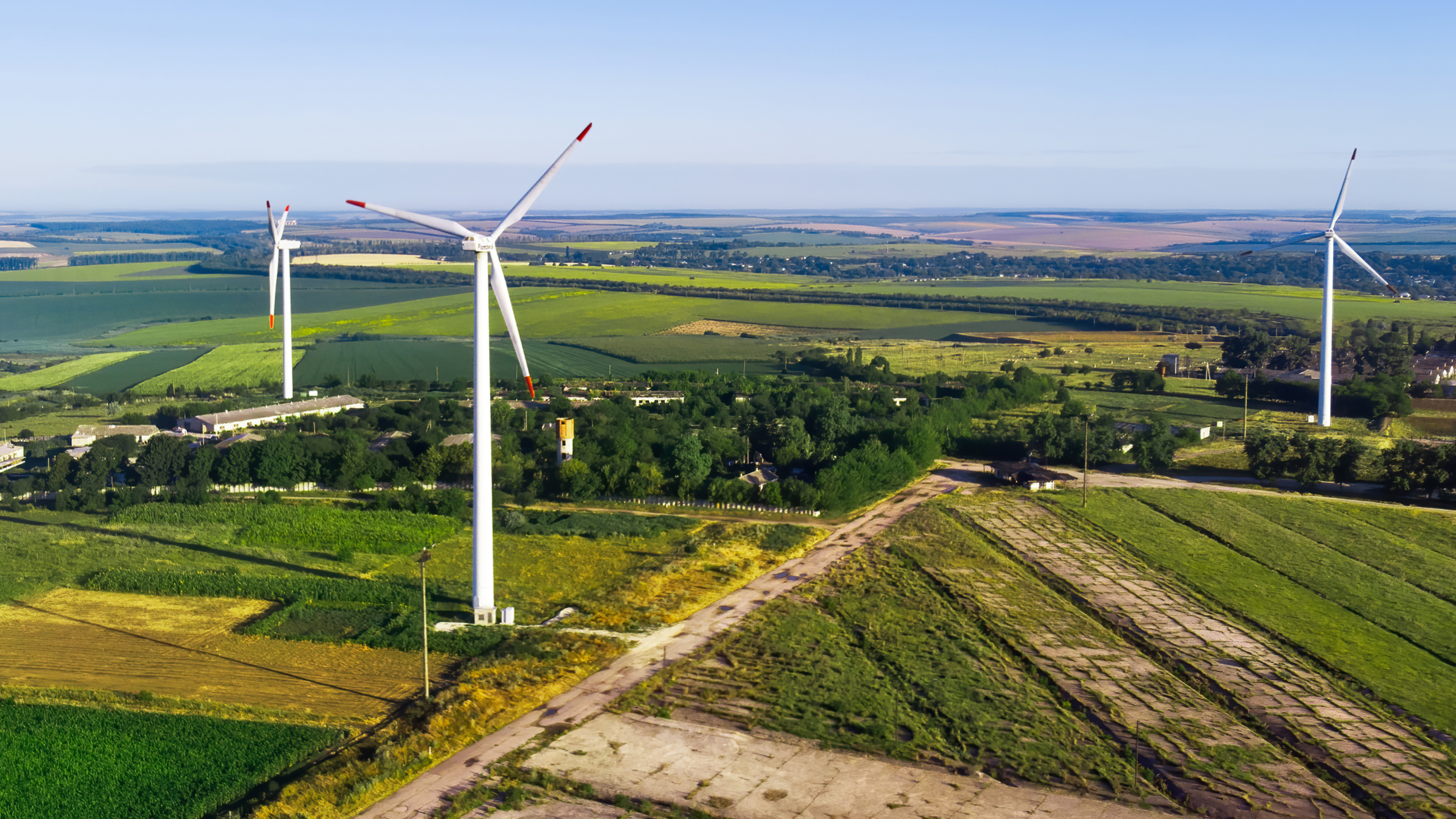
Project
Wind4Bio aspires to facilitate the transition to renewable energy sources by addressing one of the main barriers to the proliferation of wind energy: local opposition on the grounds of biodiversity concerns and inadequate transparency in permitting procedures. The project develops a multi-perspective approach to harmonise biodiversity and wind energy policies in the participating countries Greece, Latvia, and Poland. The new wind energy approach to be employed by public authorities in collaboration with non-governmental organisations and the wind energy sector particularly involves civil society in the mitigation of threats related to the deployment, operation, and decommissioning of wind farms. To achieve this goal, the project builds the knowledge and capacities of public authorities and provides them with resources to address biodiversity concerns through advancements in their energy planning and monitoring policies. Furthermore, it improves cooperation between public authorities and civil society, allowing the latter to be more actively involved in identifying and monitoring biodiversity threats. It further enhances the capacity of businesses in the wind energy sector to voluntarily implement biodiversity protection measures. In the end, these activities increase public acceptance and support for wind energy and ultimately contribute to an accelerated expansion of wind power capacity in the respective areas.
Last update: July 2024


